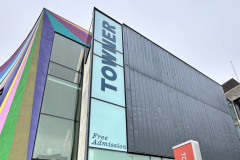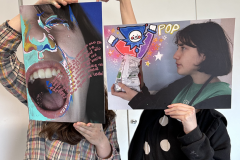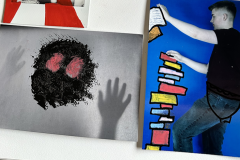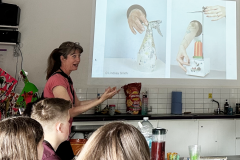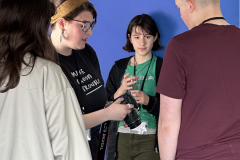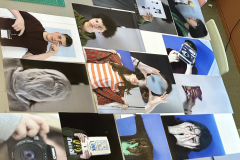Co-founder of Make (Good) Trouble, Tayler is responsible for creating and developing editorial, radio and podcast projects as well as and heading up our research and evaluation offer. Tayler is our Deputy Child Protection/Safeguarding Lead.
Podcasting passions
onAt the end of 2024, we held two podcasting workshops for young people as part of the Coastal Catalyst project. Together with students, we explored the art of interview techniques and guided them in crafting their very own podcast – turning their ideas into compelling stories. We hope you enjoy listening to their stories…
Teen Tunes, a podcast created by Freya and Ben, is a delightful dive into the roots of their passion for music.
The Things We’re Passionate About is a podcast created by media students from Brighton Aldridge Community Academy. It focuses on a number of big issues they care about: from bringing more colour into our city and better buses to the cost of living, the minimum wage, women’s rights, litter and secure housing.
These podcasts were created with the help of Make (Good) Trouble. Coastal Catalyst is supported by Future Creators, Brighton Dome, Talent Accelerator and Arts Council England.

